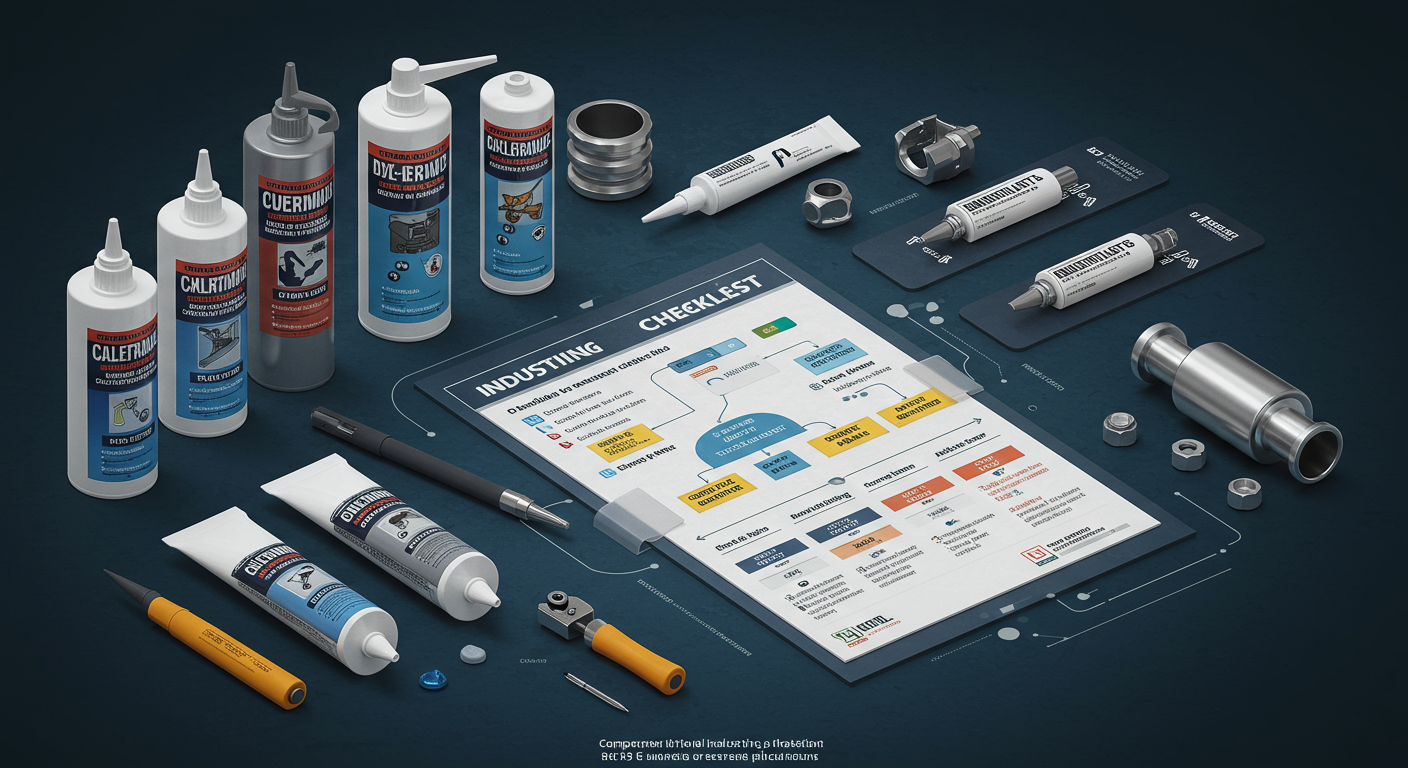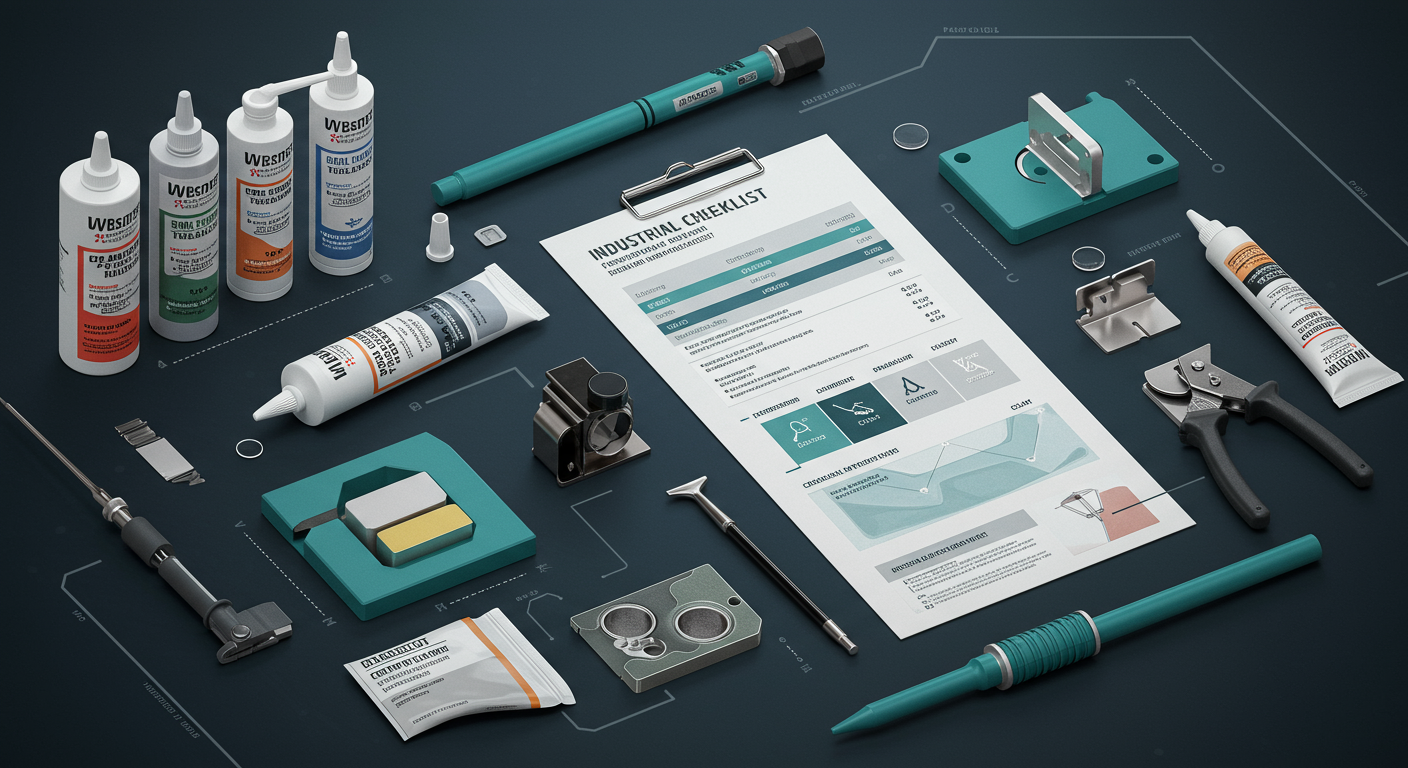The Essential Checklist for Choosing the Right Industrial Sealants
Understanding Your Sealing Needs: A Crucial First Step
Selecting the right industrial sealant is critical for ensuring the long-term performance and durability of your project. A poorly chosen sealant can lead to leaks, failures, and costly repairs. This checklist will guide you through the essential considerations for making an informed decision.
Identifying the Application and Environmental Factors
Before selecting a sealant, carefully assess the specific application. Consider:
- The substrate materials: What materials will the sealant be bonding? Different sealants have varying adhesion properties.
- The service temperature range: Will the sealant be exposed to extreme temperatures? This impacts the sealant's flexibility and durability.
- Chemical exposure: Will the sealant be exposed to chemicals, oils, or solvents? Some sealants offer superior chemical resistance.
- Movement and stress: Will the joint experience movement or stress? Flexible sealants are needed for dynamic applications.
- Moisture exposure: Will the sealant be exposed to moisture or humidity? Certain sealants offer better water resistance.
Key Properties of Industrial Sealants: A Detailed Examination
Once you've assessed your application needs, focus on the crucial properties of different sealant types.
Understanding Sealant Types and Their Applications
- Silicone Sealants: Known for their excellent flexibility, weather resistance, and adhesion to various substrates. Ideal for applications requiring high movement capabilities.
- Polyurethane Sealants: Offer superior strength and durability, with good adhesion to many materials. Suitable for structural applications and high-stress environments.
- Acrylic Sealants: Generally less expensive and easy to apply, suitable for less demanding applications with moderate movement.
- Polysulfide Sealants: Excellent chemical resistance and long-term durability; commonly used in marine and industrial applications.
Essential Performance Metrics to Consider
- **Tensile Strength: Measures the sealant's resistance to pulling forces. Higher tensile strength indicates better durability.
- **Elongation: Indicates the sealant's ability to stretch without breaking. Higher elongation is crucial for applications with movement.
- **Adhesion: Measures the sealant's ability to stick to different substrates. Strong adhesion is crucial for a lasting seal.
- **Hardness: Determines the sealant's resistance to indentation and abrasion. Appropriate hardness depends on the application.
- **Temperature Resistance: The range of temperatures the sealant can withstand without losing its properties.
Choosing the Right Sealant: A Step-by-Step Process
- Define your needs: Carefully consider the application, environmental conditions, and required performance characteristics.
- Select potential sealant types: Based on your requirements, narrow down the options to suitable sealant types.
- Review technical data sheets: Consult TDS for detailed specifications and performance data.
- Consider cost-effectiveness: Balance performance with budget considerations.
- Test the sealant: If possible, conduct a small-scale test to verify performance before full implementation.
The Vensco Advantage: Your Partner in Industrial Sealing Solutions
Vensco Engineering Trading & Supplies provides a comprehensive range of high-quality industrial sealants, backed by expert technical consultation. Our deep product specialization and local presence in Egypt ensures prompt delivery and reliable support throughout your project. We are committed to providing cost-effective solutions that meet the unique demands of the Egyptian market.
Conclusion: Ensuring a Successful Sealing Solution
Choosing the correct industrial sealant is a critical step in ensuring project success and longevity. By following this checklist and considering the key factors outlined above, you can select the ideal sealant for your specific application and minimize the risk of future problems.
Get a personalized quote for your insulation needs today.


